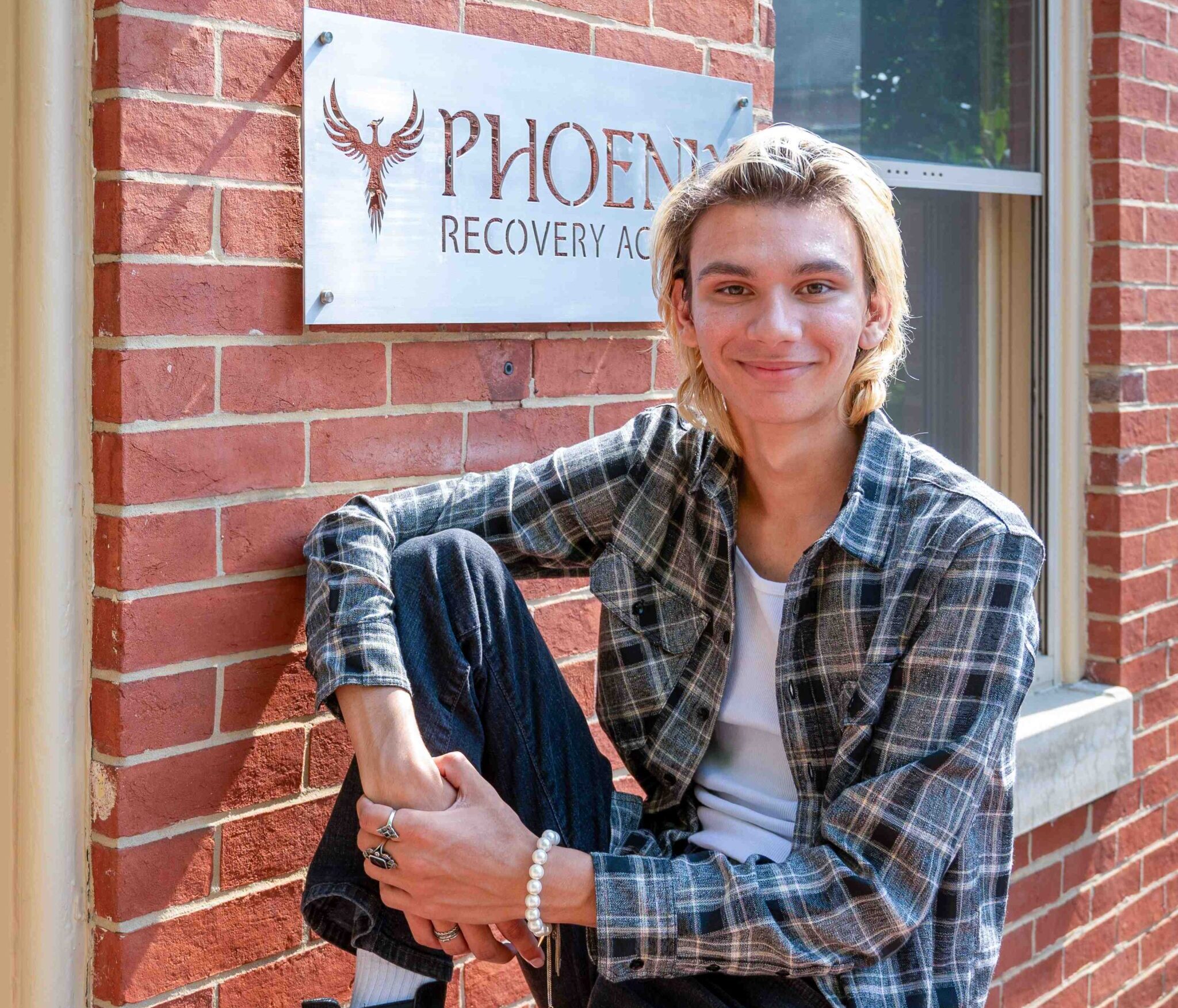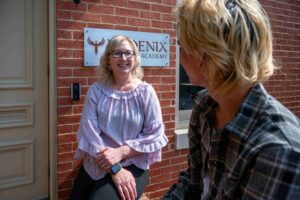 Strategic Grants Support Efforts to Address Substance Use Disorder
Strategic Grants Support Efforts to Address Substance Use Disorder
Rayhan sits comfortably in a lounge chair in a sunlit room, he smiles with a shy confidence and speaks eloquently about his teenage years that were chaotic and troubling. Rayhan is 17 and he is a student at Phoenix Recovery Academy, a place where he says he can finally process the addiction and trauma that are behind him, and where he feels secure enough to begin building a bright future.
It’s unnerving to hear someone so young talk about their experience with drug addiction, hospitalization, suicide attempts and an assumption that he would not live to see 18. Rayhan, now a resident of Frederick, grew up in Virginia and by the age of 15 was addicted to crystal meth and spiraling. He says he was hospitalized in 2020 for a suicide attempt and spent the next year in and out of various treatment programs. In the summer of 2021, he started attending Phoenix Recovery Academy and while he says it took time to acclimate and find his place, he says the organization and the people there likely saved his life, or at least offered him the building blocks for a better life.
“When I got here, it was a warm, welcoming environment and I felt loved immediately and they didn’t care about all the external stuff, they just cared that I was here.”
While he says he felt welcomed at the school, Rayhan admits that the first year was very challenging. He says he was stubborn and defiant and spent the first ten months closed off. “It took me hitting a bunch of emotional lows to realize that I’m blowing up my life and I need to get my sh** together.”
He was told that if he didn’t start doing what he needed to do, he was going to get kicked out of the school and he says at that point he started engaging and being emotionally vulnerable and responding to the school’s programs. “Since then, my life is beyond my wildest dreams. I have friendships that aren’t transactional and real relationships where we talk and that’s really special and important. I have people that I can rely on and I trust to share with.”

Rayhan speaks to Stephanie Purdy, Phoenix Recovery Academy principal, in front of the school.
Responding to substance use disorder is one of the Community Foundation’s strategic areas of focus. The Phoenix Recovery Academy received a $20,000 grant to support its Recovery High School program for adolescents in recovery.
Heather Whitcomb, executive director at Phoenix Recovery Academy, said the school is approved by the Maryland State Department of Education to provide high school curriculum and recovery support for students in grades 9-12.
“We are unique in that we are the only recovery high school in Maryland and recovery high schools are effective due to our small class sizes (10:1 student/teacher ratio) that offer individualized instruction, close knit, positive peer pressure environment, peer support within the school day, and daily support groups,” Heather says.
Heather points out that the school’s mission is important to Frederick County and surrounding areas because they are providing early intervention, which is key.
Rayhan says that the first thing he tells new students is that the school can be the worst thing, if that’s what they make it, that it’s all about a person’s willingness to engage and let the program work.
“When I was an active addict, I didn’t think I’d make it to 18. I think about the stark change from when I was snorting meth in my room at 2 a.m. to now where I wake up at 6 a.m. and go to school and then go to an internship at the State’s Attorney’s office,” Rayhan said while shaking his head. “The transition from that life to what I have now is all thanks to this school.”
Rayhan lives with his mom in Frederick, and he is on track to graduate in the spring. He plans to go to college – he’s looking at schools like Georgetown University and New York University among others – and says he is still exploring potential career paths but is considering studying in fields like law or investment banking.
“I definitely want to stay involved with this school and do whatever I can to support what they’re doing,” Rayhan said. “They are doing great work to destigmatize addiction.”